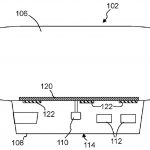New Walmart Purchase Jet Raided Local Pet Stores When Distributors Wouldn’t Play Fetch
Last fall, Barbara*, who works in the marketing department of a holistic pet supplement maker, was in the process of putting together a pricing policy for her company’s products when her boss asked her to look into a site called Jet.com.
“They were all over the news at that time,” she recalls. The coverage concerned a program called Jet Anywhere. Jet.com was offering “JetCash” to customers when they shopped at merchant sites belonging to Walmart, Amazon, Macy’s, and others. To use this cashback program, consumers would have to go to the Jet Anywhere tab on Jet.com and click on a link to one of those merchants. Once they completed their purchase on the other site, they were directed to forward their purchase confirmation to anywhere@jet.com. Jet would then append “JetCash” to the customer’s Jet account, which could be redeemed for money off their next purchase on Jet.com. Not all the merchants linked to on Jet Anywhere had agreed to participate; more than 100 retailers asked Jet.com to remove the discount links, prompting the news coverage.
Though Barbara’s company was not among those linked to on Jet Anywhere, her boss wanted her to check out the site and see if their pet supplements were appearing there. Barbara discovered her company’s supplements were being sold on Jet.com. “We don’t allow our products to be on Jet.com, and if you Google us you’ll see us on there,” she says. After ordering her company’s product through the website, she was able to determine which distributors had sold to Jet, and promptly issued letters asking them to stop. Roughly a year later, the company’s supplements are still being sold on Jet.com, despite the manufacturer’s best efforts to stop it.
Barbara’s company isn’t alone. It turns out a number of high-end pet food manufacturers like Champion Pet Foods, Diamond Pet Foods, Rawz, FROMM Family Foods, Weruva, Naturvet, and Wellness Pet Food all say they don’t distribute through Jet.com, and yet their food appears on its site. Many of the manufacturers I spoke with said they had signed agreements with their distributors specifically stating that they would terminate their business relationship if those distributors sold the manufacturer’s goods to Jet.com. But that didn’t deter Jet.
“A representative of [Jet] approached me and said that if we didn’t sell them our product, then they would go and buy it retail,” says Ted*, the owner of a pet food manufacturer, who wished not to be named. In other words: When Jet couldn’t negotiate deals with fancy pet food makers, Jet representatives went to small bespoke pet stores, bought food off shelves, and resold it online.
The Amazon competitor also looked into buying a physical pet store in order to foster a relationship with niche pet food distributors and manufacturers, one well-placed source claims. More often, Jet tried to get mom-and-pop pet shops to act as distributors for its big online marketplace, the source says. But using small stores as distributors isn’t easy. Unusually large orders raise flags for manufacturers and their distributors, which could lead to a small store being cut off from a certain product or company.
The Problem For Pet Food Manufacturers
There are a few reasons why specialty pet food makers may not want to sell to Jet.com. The first is that some prefer to exclusively sell their products through brick-and-mortar shops, because they view that experience as being more white-glove than an online experience. The second reason is manufacturers see Jet as undervaluing their premium products through its discounts. Thirdly, these manufacturers may have signed deals with other online merchants promising not to sell on competing sites.
Pet food maker Rawz boasts high-protein, grain-free dog and cat food, claiming it’s the next best thing to a completely raw diet. Raw diets, which can include a blend of bones, raw meat, fish, eggs, organs, and other animal parts, are supposedly healthier for cats and dogs than most manufactured foods. But they are difficult to prepare, have a high ick factor, and can be expensive. Rawz dehydrates a variety of poultry and fish and turns it into kibble. The grain-free food doesn’t come cheap, but consumers know they’re paying for a quality product. The company also donates 100% of its profits to charity.
A Jet representative approached Rawz founder and CEO Jim Scott, wanting to sell Rawz on its site, but Scott told them he only sells to brick-and-mortar stores. Scott feels pet specialty shops offer a more personal shopping experience than online stores. Amazon has tried to re-create this same intimacy through reviews, but Scott would argue it’s not the same. Store clerks can wax poetic about the benefits of each product and make personal recommendations to pet owners. “It’s a nutritional consultation, is really what it is, and you can’t get that online,” he says.
The second reason Scott said no to Jet.com is because of its discount pricing. “It creates the perception that the product is overpriced,” he says. Jet.com doesn’t consider itself a discount site, though it does offer consumers item price breaks when they buy products in bulk. On its website, Jet explains that it saves money when it can package goods together and in turn can pass savings back to consumers by adding discounts to their overall cart. Consumers can earn further discounts by paying with a debit card rather than a credit card. Here’s the shopping cart scheme in Jet’s own words:
The items you’ve added can be packed and shipped with other items in your cart. It costs us less to ship multiple items together, so when you add items with the tag to your cart, you pay less. Products whose manufacturers don’t allow discounts won’t drop in price, but don’t worry—our prices are low from the start.
Jet says its doesn’t offer price breaks on products that manufacturers don’t want discounted, but if you put products from any of the brands mentioned above who aren’t officially working with Jet in your cart, you’ll see discounts applied. That doesn’t sit well for brands that want to maintain the perception that their goods are worth a certain amount.
For Scott, there’s also a concern that online stores with discounts like Jet.com are a threat to small brick and mortars, because people would rather buy a product they already know from a website with a cheaper price than from their local pet store.
Scrappy Tactics
This wouldn’t be the first time that Jet founder Marc Lore packed a van full of store-bought goods to later sell on one of his sites. When he was starting up Diapers.com, he was unable to strike an agreement with diaper manufacturers, so he sent out his only employee to a local BJ’s Wholesale Club to buy up diapers in order to fulfill orders being placed on the site, according to a Bloomberg Businessweek feature on the company’s early days. Eventually Diapers.com was able to convince major manufacturers like Proctor & Gamble to work with them.
In the Businessweek article, the ploy comes off as a scrappy way to circumvent the big dogs, who refused to sell to Lore because his operations were initially too small to bother with. But the tactic is perhaps a little less admirable when used to dodge the wishes of niche manufacturers who want to limit the number and scope of retailers they work with. As a salesperson at one of the manufacturers put it, “They’re like hackers. You cut off one source and they find another entry point.”
Of course, this kind of behavior from a major e-commerce player isn’t uncommon. Amazon’s well-documented rub with the publishing industry illustrates the way online discounters can put the squeeze on companies that don’t comply with its interests. When it comes to inventory, Amazon has the added advantage of its glut of third-party merchants.
Amazon’s roughly 2 million third-party retailers, often small independent stores looking for larger distribution, are responsible for almost half of units shipped on Amazon’s platform. That allows Amazon to have a diverse product offering without having to deal with manufacturers directly. While some of the pet food manufacturers I spoke with were equally unhappy with their products being on Amazon, they said it was easier to get in touch with an Amazon merchant and have their products pulled offline than it was to negotiate with Jet. These third-party merchants do make it hard for Jet to compete with Amazon in terms of breadth of merchandise. But is circumventing manufacturers who don’t want to do business with them an appropriate workaround? Manufacturers would say no.
Is This Legal?
The strange tactic is probably legal, but it’s definitely not standard business practice. In most circumstances, businesses are not selling a product for less than they acquired it for. Thanks to its oodles of venture capital, Jet.com has been in a unique position to lose money.
Pet manufacturers assert there’s an issue of food quality at stake, too, because they can’t guarantee the product that Jet.com is selling is being stored properly or sold within its shelf life. They’re concerned that if Jet is negligent with sell-by dates, customers might get a stale representation of their food, or worse, someone’s pet might get sick.
The practice of selling a product without the manufacturer’s blessing could also cause contractual issues for food makers. Some pet food brands have exclusivity deals with Amazon and Chewy.com, a discount site that only sells pet accoutrements. So when Jet.com obtains products outside the usual channels, manufacturers say it may put them in breach of contract if they’re obligated not to sell to a competing site.
Legalities aside, it’s pretty obtuse for a company of Jet’s size and valuation to ask the very small pet boutiques it plans on undercutting to be complicit in circumventing upscale food manufacturers that don’t want to sell on its platform. And it would be difficult to argue that Jet might be putting small pet speciality retailers out of business through its competitive pricing. But if Jet is shown to be contributing to the demise of these shops by underpricing them, potentially limiting competition, the point is moot if some stores are actively helping Jet do so by selling product to Jet off the shelf.
Manufacturers, too, might have difficulty trying to win a suit against Jet—especially if they band together. If it appears that a group of pet food manufacturers are collectively deciding not to sell to the online retailer, an argument could be made that they’re boycotting Jet, which is considered anti-competitive behavior.
In general, anyone can sell anything (unless they’ve stolen it) to anyone for any price they see fit. Once a product leaves a manufacturer, they typically don’t care what happens to it. A shirt bought at Barney’s can be resold repeatedly on eBay. The only time that isn’t true is if that company or person is doing the above in a way that interferes with competition. Then it becomes an anti-trust issue. But for the reasons outlined above, it would be very hard to make the case that Jet is acting anti-competitively.
Though Jet.com’s unconventional product acquisition maneuvers may not be explicitly illegal, they are definitely weird and have earned the wrath of manufacturers. Walmart, Jet’s soon-to-be parent, has not said whether or not it will end this practice. When we reached out to the superstore, a representative said, “We are building a detailed integration plan based on our complementary capabilities and what makes the best sense to drive the business and provide the best experience for our customers.”
*Sources have been given alternative names to preserve their anonymity.
Fast Company , Read Full Story
(28)












